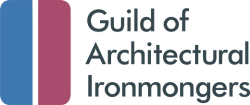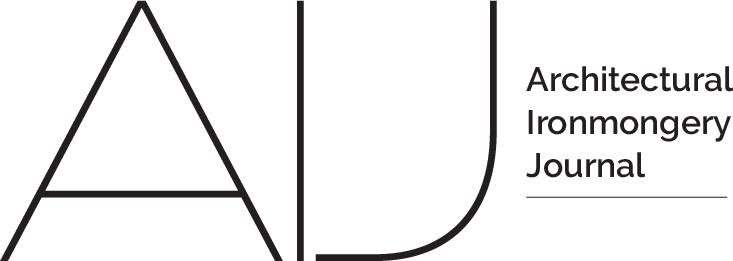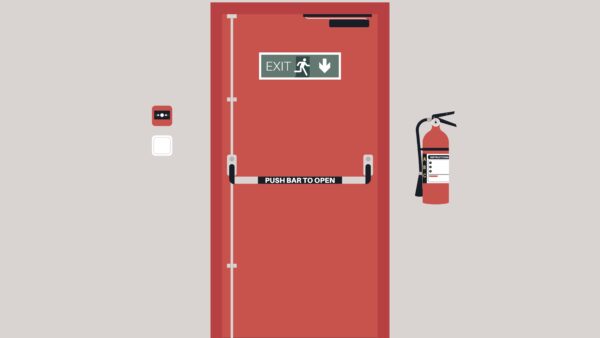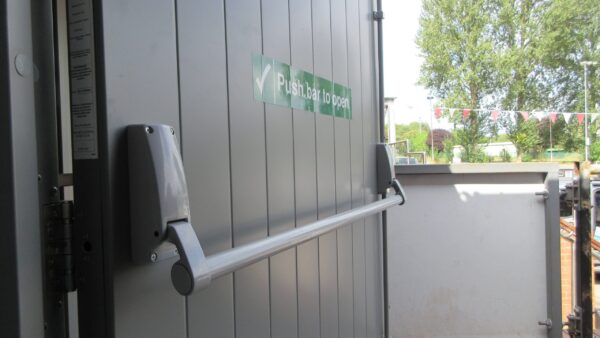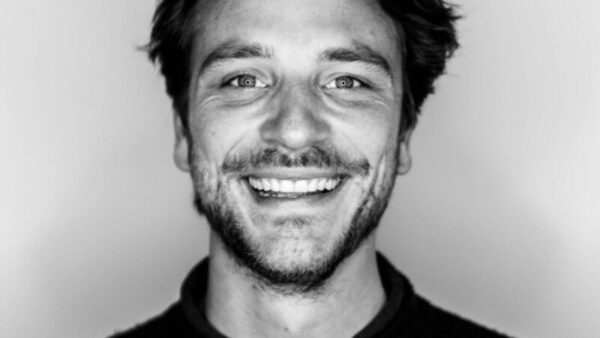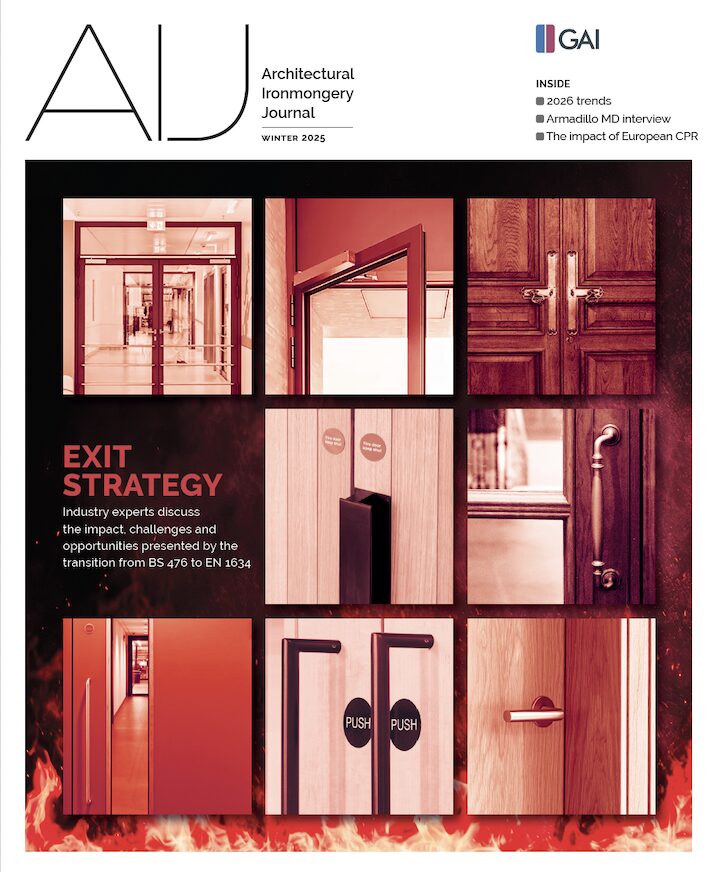AIJ caught up over a coffee with new GAI president Mario Del-Signore and chief executive Simon Forrester to discover their plans for the Guild, and how they will work together to achieve them.

How far do you think the GAI has come in the past five years?
MDS I think there has been significant progression. The One Future Vision strategy was designed to elevate the three pillars of the Guild: education, technical and community. We’ve developed, and continue to develop our course programme, massively increased the range and quality of technical support for members, and extended our branch network too.
SF Since taking up my role I’ve spoken to a lot of members, and they have commented on a much greater level of professionalism and focus – the Guild has changed from a talking shop to something that is really starting to deliver.
MDS People tell me things are moving on at a pace, but there have been frustrations that things haven’t been finished off. I’ve tried to get to the bottom of this and move our strategy on. We now have the right people doing the right jobs – which to me is just good management practice. We understand where we are headed now. I’m picking up the baton from Julian Newman and, I hope, running with it. Keeping up the pace is the key to our continued success.
SF One of the things that I’ve really been pleased with is the clear vision
for GAI’s future. A lot of work has been done over the past six months, and people can now visualise the new strategy. We have a lot to do to get ready for whatever the future throws at us, but the Executive Committee and staff team are all committed to deliver the vision.
MDS Simon has already made quite an impressive impact with both his understanding of associations and his enthusiasm for our industry and has helped us clarify our strategy and start to change the culture to deliver it.
SF From my own experience of associations, culture is the hardest thing to change, and as an organisation GAI is no different. The Guild has modernised in the past few years, bringing in new back-office systems and staffing expertise from outside the sector, which has been hugely beneficial, but there is more to do. Luckily the membership is already quite far along the cultural journey to professionalism; I believe GAI has to be at the vanguard of that.
MDS External bodies are saying the same thing. What we do is too important to get wrong, and we can’t keep doing what we have always done. If we don’t adapt we will be left behind.
Why did you want to lead the GAI?
MDS It’s my industry! I think if you cut me open it would say ironmongery through and through. Being able to take on the presidency is a high point and a privilege of my career, definitely.
SF I was drawn to the Guild because of its reputation, its strong education and technical offering, and of course its very passionate membership. The structure is there to really make something bigger.
How does the partnership work?
SF Associations are led by and for their members; it’s my role to interpret the needs of the membership, pull together a strategy and get buy-in from the staff and volunteers. I work with the officers on a weekly basis, but I’m in contact with the president daily. As the most senior volunteer, the president is a great sounding board on all matters. This has been especially useful as my normal induction process to a new industry has been stopped by lockdown; normally I’d be travelling round meeting members. In the meantime Mario and the committee members have been great at filling in the blanks for me.
MDS It’s very much a team effort.
I’d like to take a moment to thank Julian for his hard work – he’s done a sterling job as president under very difficult circumstances. Going forward a new officer group comprising me, Kaz Spiewakowski from GEZE UK as VP and Steve Bewick from dormakaba as treasurer will oversea the Guild’s strategy and ensure we deliver. But we also need input from all the membership; we need new ideas and to take collective ownership of them.
I suppose I would say I’m the principal shareholder in the ‘business’ of GAI, but every member has a stake too, and I want to get more of them engaged and involved with what we do, to everyone’s benefit. We have some ideas about how we change our structure to accomplish that.
Tell us about the new strategy for the GAI. What is the focus and why?
MDS We have themed the strategy around ‘delivering more’ – whether that’s more value for money, more engagement with and between our members, or more external influence.
SF The goal is to future-proof GAI itself and our membership. On the company side, we want to help them promote their businesses and products, set standards that allow them to raise the bar on quality, and give them the tools they need to survive and thrive.
MDS For the individuals we are developing ‘best in class’ education programmes, creating greater awareness about the value of RegAI in clients’ minds, and a steady stream of CPD to keep AIs and architects up to date.
What are the priorities?
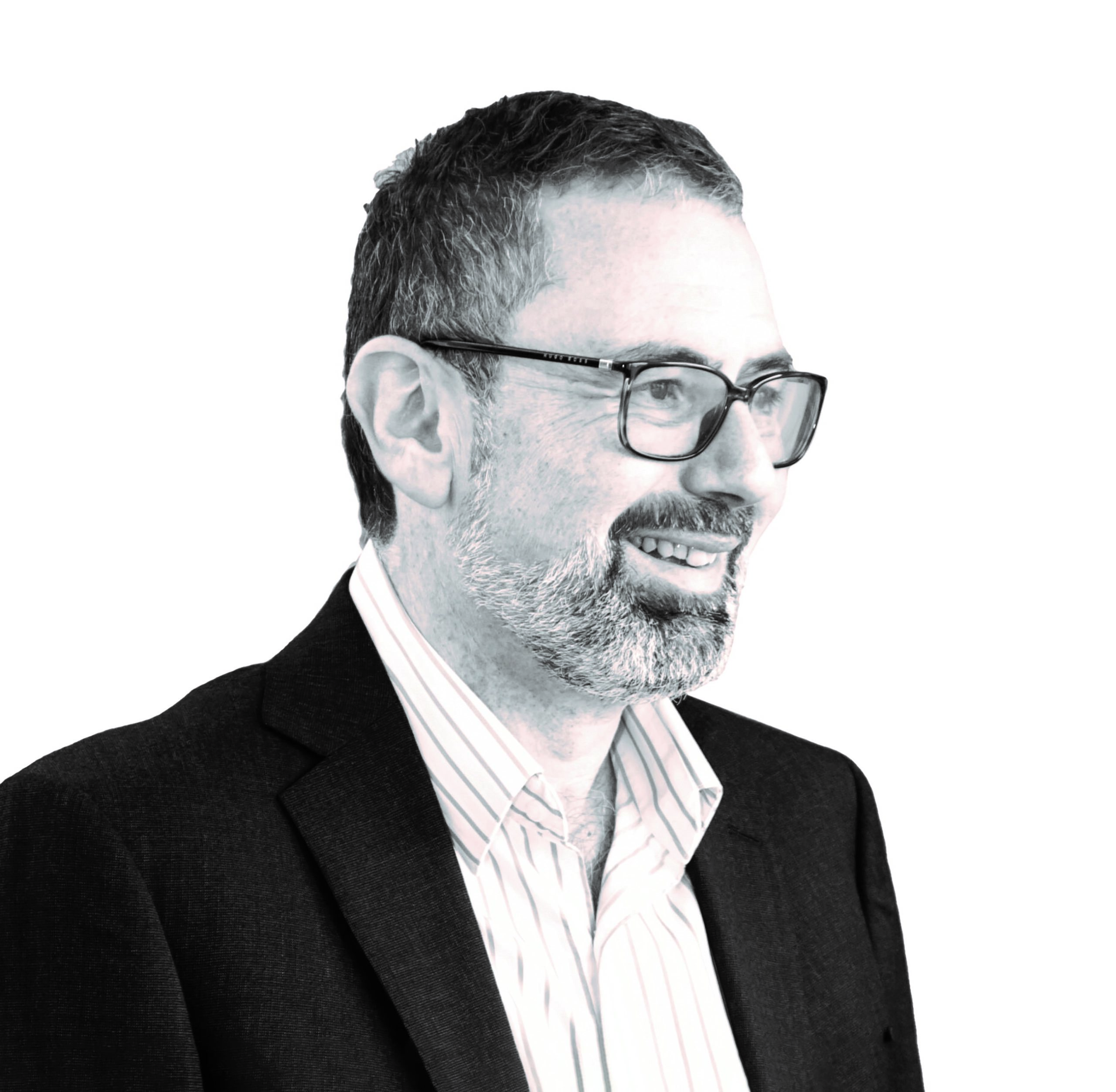
About Mario
Mario has been involved in the industry since 1984, when he first took a role in one of his local ironmongers. Following 12 years in a very successful retail ironmonger, he then joined CISA UK, leading its mechanical business division. Then, after roles with both Ingersoll Rand and GU, Mario established the CES UK business in the UK in 2009. Mario has a passion for cylinders and security, having served on the GAI technical and marketing committees as well as serving the IAI as vice chair 2013 to 2015 and chair 2015 to 2018. He was also the recipient of the GAI Trophy for services to the IAI in 2011 and the was voted a Fellow of the IAI in 2019. Married with two children and a dog (Vialli) he dotes on, Mario is a passionate amateur cook and Chelsea FC fan.
MDS While we are still working on some of the details, Simon and the team are bringing the Guild and Institute together under a single banner (launched at the GAI Members Day on 27 May), and improving some of the structures that underpin the work of GAI.
SF I think there is a lot of work to do to make a better website, and finish off some of the projects that are nearing completion like the Best in Class initiative.
There’s a renewed focus on regulation from Government post-Grenfell; what is GAI’s role?
SF We’ve allowed manufacturers to take up the mantle of product safety, but there is also a role for AIs to support this.
MDS Regulation allows us to take back control of our destiny. I’d like to see tenders state that the door hardware must be specified by a RegAI. We can use this vehicle to drive quality in our sector.
But is more red tape what our sector needs?
MDS Members do like regulation and structure, as long as it’s appropriate; they can identify with that. We want certainty and a level playing field for all, and regulation can provide that by excluding the cowboys. Clients want a value chain with a proper pedigree, and I believe they will be willing to pay for this.
SF The goal is to make RegAI and GAI membership a shorthand for quality and reassurance, through qualifications and CPD, audit and regulated competences.
What about FDIS?
MDS Both Simon and I sit on the Advisory Board for FDIS, and we are very pleased with progress. A lot of work has been done around UKAS accreditation and ensuring standards are set and maintained. Fire door inspection is likely to become more regulated, and we are very pleased to be partnering with the British Woodworking Federation on FDIS.
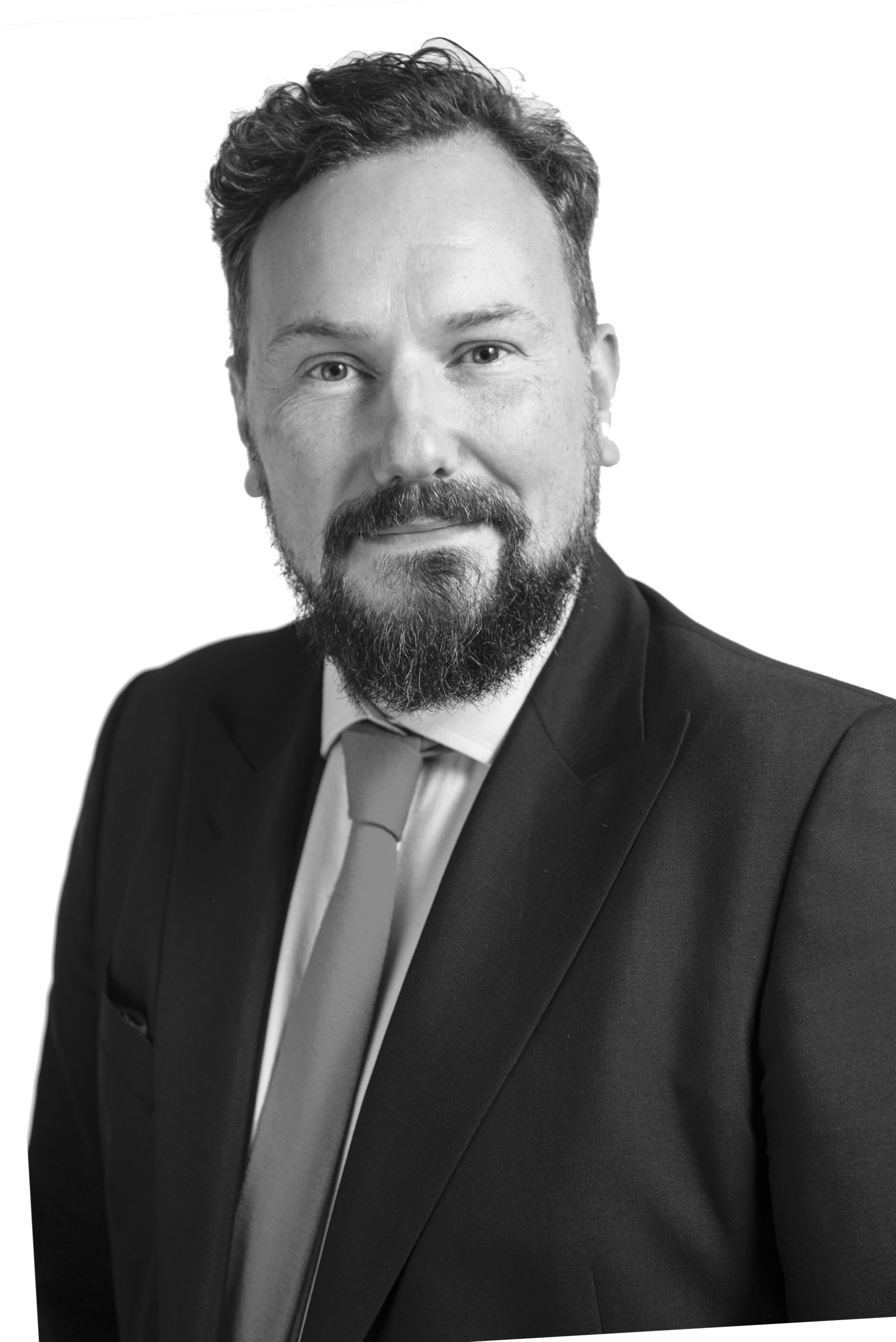
About Simon
Simon Forrester is an award-winning association leader with over 25 years’ experience in a variety of trade bodies and professional institutes across the public health, business tourism, construction and most recently jewellery sectors. He took on the role of GAI CEO in December 2020. His role encompasses strategic direction for the association, and supports the Guild and Institute Executive Committees. An MBA graduate from Birmingham City University, Simon lives in Staffordshire with his wife and two children.
The Guild celebrates its 60th anniversary this year. What is the role of a professional body in modern times?
MDS. It’s a voice of reason in a changing world – we offer stability, support and the kudos of being part of a recognised body.
SF I call it the three Rs: times are moving ever more quickly, and we need to help members be more resilient, demonstrate our relevance to them, and reassure them.
MDS I think Simon’s right; reassurance is very important. The name ‘Guild’ has 60 years of recognition, history and credibility and accurately summarises our work to oversee the practice of our ‘trade’, encompassing education alongside standards.
How do you see the industry as a whole developing?
MDS That’s an interesting question and I genuinely wish I had a crystal ball. With both Brexit and the global pandemic still having a sizeable impact it really is too early to tell, but from the GAI perspective we really need to ensure we keep relevant with our overall offering, focussing on our highly revered education system and much admired technical services. We cannot of course forget our community, although we haven’t managed to see each other face to face, the Guild quickly switched to online gatherings. The GAI team deserves an awful lot of credit for its hard work and dedication.
SF For me it’s a bit early to start forecasting. What I would say is that the seminar at Members Day on the Future of AI will give me some food for thought – I’d recommend you listen to it.
What are the key challenges and opportunities for members?
MDS. The industry has suffered over many years through a culture of value engineering which leads to buildings that don’t last or do what was intended, and ultimately unhappy clients. This means that some don’t value what we do, and decide to do it without input from quality suppliers or RegAIs. Through the strength of our association we should be outwardly communicating that quality specified by a competent person and delivered by a reputable supplier or manufacturer is the only way forward.
SF We all benefit from these issues being tackled and put out in the open, but to stop the devaluation of the RegAI role I think that regulation is key. Another common issue is time. Time to record your CPD, time to look at new products, time to develop your career. An association can support in all these areas.
MDS Yes, during my presidency I intend to put GAI at the heart of professionalism. If we can create that definition of ‘professional’ around RegAI we can add value.
Which trends should members be preparing for?
MDS. In legislative terms I think we are likely to see more regulation of construction products and the people that manufacture, test, specify and install them.
SF. Digitalisation, BIM and eventual divergence of standards – AIs are very well placed to become experts in these areas and capitalise on this.
What are the ‘elephants in the room?’
SF. The value a RegAI brings to a project isn’t visible in the short term – we need to change the conversation with clients so they realise the benefits. If the customer sees us as just an overhead, and thinks they can do it cheaper without us, we are doomed. We need to demonstrate the value to clients, starting with education of our industry to explain to clients the value of using professionals. The best way is to be properly trained, and the best place for that training is GAI.
MDS. I want to address how the rest of the world outside the UK can benefit the GAI. Our role is about raising standards worldwide, and we are working alongside sister associations in other countries to do just that.
SF One of our previous strategic goals was to engage with opinion formers (architects, journalists, politicians, regulators) in order to raise the importance of what our members do, and we’ve done well so far but we have more to do here.
Thanks both – anything to add?
MDS. In the past few years we have turned GAI from a bit of a cosy club into an association, and now it’s becoming a proper business. In the next two years I intend to strengthen that position, and anyone that knows me understands that I deliver on my promises.
SF. I’m looking forward to getting out there and meeting the members I serve – get in touch and I hope to see you soon!
Email Simon at [email protected]
